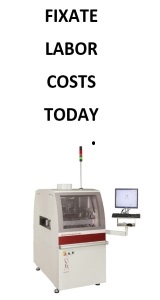Instead of using the Alpha, Compaq will use Intel's new high-end chip, the Itanium, in what analysts called a sign that the server industry is increasingly embracing Itanium as a core architecture. Santa Clara-based Intel co-developed the chip with Hewlett-Packard to be a cheap-but-powerful competitor to IBM's PowerPC and Sun Microsystems' Sparc.
The companies did not disclose terms of the deal.
Compaq's Alpha chip -- which it got when it acquired Digital Equipment in 1998 -- is well-regarded as one of the most powerful in the industry, but its future has been in doubt as Compaq couldn't sell enough to justify its cost. One of Intel's strengths is being able to make chips cheaply.
Ceding the processing work to Intel ``allows each of us to do what we do best,'' said Compaq's chairman and chief executive, Michael Capellas.
Compaq will focus on providing ``clustering'' software, which makes servers into supercomputers, and other solutions to high-end customers. The Houston-based Compaq is moving toward a new strategy to emphasize software and services over hardware products, where profit margins have plunged amid steep competition.
Intel, already a leading supplier of microprocessors for small- and mid-size servers, will gain an army of engineers experienced in the high-end market, which includes governments, drug researchers and stock exchanges. Those engineers, who hail from Digital Equipment, should help Intel speed acceptance of the Itanium.
Analysts say the Compaq-Intel announcement shows a real shift from a few years ago, when each company that made large servers -- including Intel, Compaq, Sun, IBM and Hewlett-Packard -- would make them using their own microprocessors. That made it practically impossible for a client of Compaq, say, to continue using its favorite software applications if it bought an add-on server made by IBM. Now the industry is moving toward standardizing so that businesses can buy high-end systems from different vendors.
Some analysts said the Intel-Compaq deal will put more pressure on Sun Microsystems, which has stuck to a strategy of having its own proprietary microprocessors. But Sun says that strategy has served it well in the past, and helped make it the top server vendor in the United States, in dollar terms, in 2000.
``The largest mistake we could make is to join that crowd and abandon our value proposition,'' said Shahin Khan, Sun's vice president of product marketing and strategic planning.
Compaq and Intel executives would not reveal the financial impact of the deal, but Compaq said it will save hundreds of millions of dollars it had been spending to develop and upgrade the Alpha chip.
To ease the transition for Alpha customers, Compaq has committed to two more speed upgrades and one product upgrade before the Alpha chip is moved to Itanium in 2004. After that, customers will have to decide whether to stick with the Compaq products that have Intel inside, or go with a competitor.
Compaq was a world leader in server unit sales last year, selling just over 1 million units, most priced at a few thousand dollars apiece. The servers Compaq is outsourcing to Intel are much larger, selling for $100,000 and more, analysts said.
In revenue terms, Compaq is third in worldwide server market share, at 16 percent, behind No. 1 IBM and No. 2 Sun Microsystems, according to Gartner Dataquest.
``This is giving (Intel) a tremendous growth opportunity,'' said Nathan Brookwood, an analyst at Insight64, a research firm.
The Intel-Compaq deal also ends widespread speculation about the fate of Compaq's high-end servers. Customers use those servers to enable them to do huge data-intensive computing or to back up computer systems. But some said Compaq didn't seem to be investing enough to really keep customers on the cutting edge.
``Alpha has been until recently the most powerful processor you could buy for that kind of scientific computation,'' said Linley Grennap, principal analyst at the research firm Linley Group. But Compaq ``kept it in this zombie state where they were sort of investing, but not really.''






